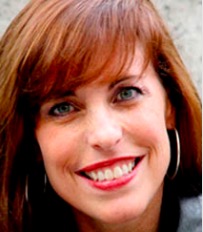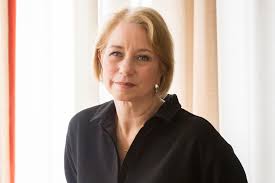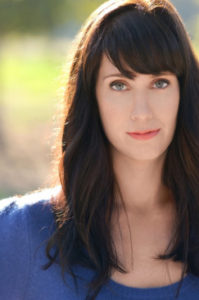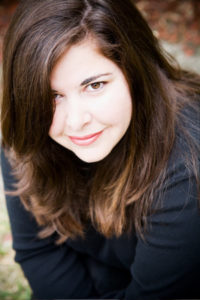On Tuesday morning, September 11, 2001, I was headed from my suburban Westchester County home to lower Manhattan to meet an editor in the Woolworth Building, two blocks north of the World Trade Center. My husband was in his midtown office, about to leave for a breakfast meeting, also in lower Manhattan, when he heard that a plane had just crashed there. He turned on the television, saw the second plane hit live after hearing it flying low over his building, and called home. Our nanny answered and caught me before I pulled out of the driveway on my way to the train.
When my husband told me not to come to the city because it was under attack, I was incredulous. It wasn’t that I didn’t believe him, but…
Okay, yes it was. I totally didn’t believe him—notwithstanding the fact that he’s a quiet, understated kind of guy who (unlike his crime writer wife) doesn’t have a dramatic hyperbolic bone in his body. Yet he was insistent that I call and cancel my meeting.
“What am I supposed to tell my editor?”
“I don’t care what you tell her. Just stay home.”
I called, got her voicemail and left a vague, fumbling message about a sudden stomach bug. Then—unaware that she was in the precise moment leaving ME a frantic voicemail that they were evacuating the building—I turned on the TV. Horror set in as I grasped that the world had been irrevocably altered.
The incessant news coverage included a report that all other violent crime had more or less ceased to exist in the city that day as New Yorkers, including the criminal population, struggled with the horrific aftermath. Thank goodness, since the NYPD had their hands full with the investigation and rescue efforts at Ground Zero.
That information, coupled with another segment about the thousands of people who’d gone missing that day, triggered a series of What Ifs in my Writer Brain. Almost instantaneously, I had the fully formed premise for a psychological suspense novel.
I didn’t write it—not then, not that year, or the next….
Only when an entire decade had passed had I gained enough distance and perspective to revisit that idea. Nightwatcher (HarperCollins), about an unhinged killer preying on vulnerable New Yorkers in the days after the 9/11 attacks, was published eleven years after I’d conceived it, in September, 2012.
Flash forward to March, 2020. I was between books, having just finished revising my upcoming release The Butcher’s Daughter (William Morrow, September 2020) and about to begin writing a new one, when the world was again irrevocably altered. My husband returned to his midtown office after lunch to find the building cordoned off, surrounded by law enforcement, the press, and medical teams in hazmat suits. It turned out that the first confirmed local case of Covid-19—the New Rochelle man whose illness would result in a cluster and the nation’s first lockdown right here in Westchester—worked in the building.
In short order, things escalated—Governor Cuomo closed the universities, the NBA curtailed its season, and businesses skidded to a halt. No more commuting to Manhattan for my husband and our older son; no more college for our younger son, two months shy of graduation and plucked from his Ithaca apartment to be locked down with us in his childhood bedroom.
With four of us suddenly stuck under one roof 24/7, perpetually short on supplies, with illness and death surging all around us, I put my new proposal aside for a while. My time was encompassed with domestic tasks that had become pervasive and logistics-challenged. When I wasn’t scavenging local shelves for paper towels and yeast, I was hiking in the woods to preserve my sanity and some semblance of fitness, and chasing grim nightly news reports with lullaby-esque Friends reruns. Throughout, my Writer Brain was in overdrive and the What Ifs kept coming—several ideas for crime novels that would take place, could only take place, amid this grim new world of quarantining and social distancing. But once again, it was all too raw, too fresh, as yet unfolding.
I back-burnered those ideas as I had Nightwatcher and eventually returned to the standalone psychological suspense novel I’d been brainstorming in early March. It’s set in modern day New York—a departure for me, of late, because The Butcher’s Daughter and the two previous titles in that trilogy had been set in the past (the 1960s and 1980s) or in a specific time frame in the recent present (2016-2017).
I quickly realized that back-burnering my pandemic-set books didn’t remove the issue of how to write contemporary crime fiction from now on. Unlike the 2001 terrorist attacks, the pandemic has universally and globally altered everyday life for the foreseeable future. We’ve all been impacted by this crisis; most of us are facing varying degrees of social and physical isolation, virtual workplaces and education, nonexistent travel, restricted or shuttered businesses and recreation, limited resources, financial impact, concern for our own health and our loved ones…
Really, how haven’t we been impacted? And what happens when we, as a civilization, come out the other side? By the time a new book hits the shelves, will readers find it remotely believable for characters to shake hands with strangers, fly on airplanes, go to school and ride the subway to work? Or will reading about those things be like watching a Friends rerun in which the twin towers gleam in an aerial shot, jarring us out of the story because we’re reminded it’s framed in a fictional world that no longer exists?
The real question, for novelists, is whether we want to write about a fictional world that’s grounded in reality, or alternate reality? Have our characters experienced the pandemic, or has it never happened? If it has, then how, and when, should we write about the new normal?
For me, the answer to all of these questions is hell if I know. But writers can’t put our work on hold indefinitely until the crisis plays out. Writers have to write.
I just finished and submitted the first few chapters of a new book in which my fictional New York exists just as the real New York did through February of this year. There’s traffic and mass transportation and throngs of people everywhere. Schools and businesses are open. Restaurants are packed, Broadway curtains rise nightly, there are street fairs and concerts and sports. We can see each other’s faces, hug each other, touch each other.
I recognize that New York. I love and miss it. I want to write about it just as I always have, and I want to dwell in it again one day.
In the meantime, I’ve been talking to my crime writer pals about how they’re handling the dilemma.

Alafair Burke
I am ignoring it and praying that this nightmare will be over by the time my next book comes out, called Find Me. The book I finished with Mary Higgins Clark, Piece of My Heart, was conceived and almost completed by the time she passed in January, pre-quarantine, so no changes were made there.
I did write a short story in March for MWA’s next anthology. I set it entirely during the quarantine, taking advantage of the way the imagination can wander when you’re locked down in your home alone.

Steph Cha
I wish I had a new novel going, but I don’t…I did write a short story for Alta Journal called The Plagues, and it is set in pandemic lockdown during the George Floyd protests.

L.A. Chandlar
In my two WIPs, (the pandemic) wouldn’t add to nor elevate the story line. I think it would be crucial to have it play a role if there was specific time frame to these months or a theme. However, in my two works it would only muddy the waters.
I’ve personally had “enough” of it and don’t want to immerse myself in a story about it so count me in the AVOID category. But since I am writing a modern day novel, I did wrestle with adding it. But the more I thought about it, the bottom line is that my story isn’t about the pandemic. You see, I’ve done a lot of historical research for my Art Deco Mystery series and a variety of articles, and I’ve found that eras where disease played a major role in the fabric of the time, such as Polio or the Spanish Flu, not every story was about that. Even when talking with people, like my mother, who lived through the Polio years and my grandmother was even crippled from it, it lent a tone to the era, but didn’t define it. The similarities to this Covid-19 era are striking with the same fear, social distancing issues, ventilators, a frantic search for a vaccine, etc. But it became a separate story to all her tales. It was important, but “regular life” became more important as time went on. Which actually gives me hope.
I am working on Twelve Days of Christmas in New York where a journalist begrudgingly delves into the history of Christmas traditions. Inspired by true events, she discovers forgotten stories of the gritty and colorful history that not only made Christmas a beloved holiday, but gives her a glimpse of the magic that brings redemption—even to her own trials. I’m also working on In A Heartbeat, a modern day suspense novel that has a dual timeline with 1985. It is a little bit Stand By Me meets Big Little Lies and has a killer soundtrack.

Harlan Coben
Right now, the pandemic is not showing up in what I’m writing. I was a little more than midway through a book (WIN) when the pandemic started and to avoid any complications, I moved the story to 2019. So that wasn’t an issue. I’m starting up the next book, and I don’t yet know if it will fit in. There are two problems with including it: 1) We have zero idea of what our lives are going to be like next month, nonetheless next year, in terms of the pandemic. Will we be in lockdown, wearing masks, have a vaccine, etc? We just don’t know. 2) Part of what we do is escapism—so perhaps writing about something this close to home may not be what people want to read or what I want to write. It will be a “feel” thing for me.

Liv Constantine
Valerie and I are finishing edits on Liv book #5 which will be out next spring. We are not incorporating anything with Covid into the novel. I hope by next year this is a memory and we’ve found a way to move forward without having to fear getting close to each other! I don’t know if that’s akin to living in denial or not but I think living this is enough—I don’t want to memorialize it in my writing. As L.C. Shaw—my second book, The Silent Conspiracy, comes out in Sept and that one was finished before Covid—so again the fictional world will be one in which no masks are required and people still hug and shake hands.

Kellye Garrett
I started my current WIP pre-pandemic. Like A Sister is a Megan Miranda-esque #ownvoices domestic suspense novel about a woman looking into the overdose death of a one-time reality star found within blocks of her house—her own estranged younger sister. The tricky thing is their estrangement takes places two years before the book starts and it’s related to events that play a huge part in the story. I considered making mention of things like social distancing and face masks, but ultimately, I decided to just set it pre-pandemic. Of course, this might change because who knows where will be if/when I publish it. I have another idea that’s about a black couple who wake up and find a dead body in their AirBnB. For that one, I actually am using parts of the pandemic, specifically face masks, as part of the story. Again, this might change based on how things are post-pandemic. (Hopefully there will be a post-pandemic!)

Alison Gaylin
Okay, so the working title is The Collective. My book takes place in late January/early February of 2020, so in other words, during that last gasp of blissful ignorance. I did include some references into the future, future plans etc. that I wrote while quarantine, that are purposeful, and a sort of a nudge to the reader, an “if they only knew….” type of thing. The epilogue takes place in early March in New York City, when reality is just starting to set in. The pandemic itself has nothing to do with the plot, but I feel like setting something just before it wound up making for an interesting backdrop. The book itself is full of rage and dread, but there’s also a different type of rage and dread in the setting that the characters don’t even know about.

Greg Herren
The real question is will I write the pandemic into the Scotty series, and the answer to that is probably yes. I wanted to write another Mardi Gras Scotty book—kind of based on how deadly and shitty this last one was, and involve the Hard Rock Hotel collapse as wel—and then after that I will probably write the pandemic into the series—Quarter Quarantine Quadrille, which would be written a couple of years from now, hopefully after it’s all over and the world has started to recover. I don’t think anyone wants to read about it right now, frankly. It’s really the same question we all had after 9/11 and Katrina. I didn’t have a choice with Katrina; I couldn’t write about New Orleans and not write about it. 9/11 was kind of mentioned in both series I had going at the time—Chanse and Scotty—but it was more of a throwaway, about Homeland Security coming to being after it happened.
I am writing a pandemic short story though—”The Flagellants”—which I’ll be interested to see if anyone will publish.

Laura Lippman
I started my recently completed novel, Dream Girl, in February 2018 and it was meant to be set in what I call “nowish.” It is now set, quite firmly, in 2019. Like some other novels showing up now (Rumaan Alam’s Leave the World Behind comes to mind), it has concerns and themes that still feel timely, maybe even prescient. I was interested in the concept of isolation in our times, how there can be an appearance of connection that will be sorely tested by certain circumstances. I’m a fan of social media and have made real friends there. But I wouldn’t want to be dependent on it for all my social connections.

Elizabeth Little
What I’ve found most destabilizing, creatively speaking, is not so much the novel set of practical considerations, but rather the way the pandemic has us all radically reevaluating our priorities. I tried to keep writing my WIP, but as time went on, I just couldn’t shake the sense that the world simply does not need a locked-room mystery from me, no matter how well executed it might have been. (Since I didn’t finish it, I’m free to assume it would have been impeccable.) Instead I decided to return to an older, more ambitious project—one I’d loved but shelved because I was scared of the work it would entail. I figure if ever there was a time to take a big swing, it’s now.

Gilly MacMillan
When lockdown happened here in the UK, I had just handed in a book, and was working through proof and copy edits on it, so before starting the next one, I had the opportunity to consider what to do about the pandemic. I chatted with my agent about it and we both agreed that we would leave it out of my next novel entirely. We felt it was too soon to know how to write about it, because the short and long term future were both very unclear at that point. We didn’t know if people would want to read about it, either. So my next novel, which I started during lockdown, is set in 2019. I’ll be revisiting how to manage writing about the pandemic in a year’s time. My next one doesn’t have a title yet but, as you know, my new release is To Tell You The Truth and is out in September.

Chris Pavone
When the pandemic hit, I’d just finished up a first draft, and I’ve been revising ever since. I never seriously considered retrofitting the book to reflect the pandemic. I’m hoping that by the time this is published, Covid will be in our rearview mirror, and life will have returned to semi-normal. Even if that turns out to not be the case, my novel will be pretending that it is.

Lisa Unger
I was fully into my 2021 book when this all hit. But strangely some of the themes are relevant to the pandemic. That said, I didn’t alter anything to incorporate current events. I’m sure this moment will influence my fiction in significant ways. But it will take a while to metabolize. I tend to let things happen organically, so I didn’t wrestle with that decision overly much. I just honored the story I was already writing. I don’t have a title yet for the new book, at least not a final one.
***


















